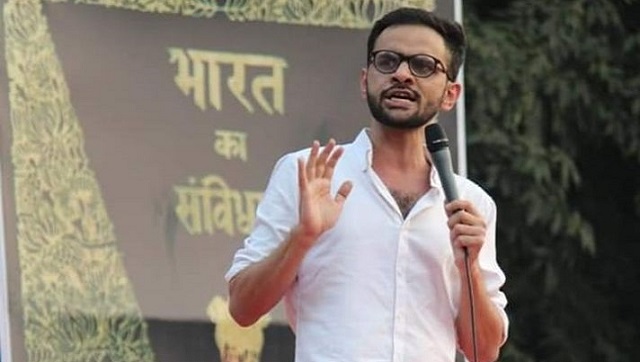From the two Portuguese students who may have been imprisoned for raising wine glasses in a toast to freedom in 1960, to the treatment meted out to dissenters in India — we have recognised the fragility of citizenship as a construct, be it in a dictatorship or a democracy. The recent arrest of Umar Khalid is being seen as one of the most outrageous steps in a series of sustained attacks on the flag bearers of a certain cause. It might trigger a mobilisation of Muslim intelligentsia to guard against perceived state atrocities, which in turn could lead to a further ghettoisation even at the cognitive level, apart from the already existing social ghettos. A possible downside of this is the gradual diminishing of the canvas of their cause, leading to a conscious ‘narrowisation’ of the political and social umbrella. This carries the risk of perpetuating the agenda of the state. Given the nature of the accusations and arrests, a centralisation of agenda is suspected and it seems that different agencies, existing for different purposes, are following the same agenda — turning means into a façade, with the end remaining the same. For the NIA (National Investigation Agency), NATGRID (National Intelligence Grid), local police, and other agencies it seems all roads lead to Rome. The unbridled police action is germane to the idea of a totalitarian state, which is being feared by the Muslim minority the most (apart from the outspoken liberals who are aware of the nature and reactions of such an authoritarian state). The arrest of young Muslim scholars like Umar Khalid is a strong message against Muslim agitators and a step towards nipping in the bud the leadership emerging in the Muslim community. Restricting the Muslim community’s eloquent scholars might also serve the purpose of breaking the back of the dialogic thought process of the community. It might shrink their space of negotiation with the state and diminish their capacity to articulate their experiences, leading to a loss of vocabulary that demands accountability from the state. The illegitimate opinion making with assistance from media-created experts endorsing the state narrative provides a pretext for withdrawing the rights of the target group of people. The mass audience in general starts to see itself as the instrument of fate destined to perform action against a particular community with support from the discourse that justifies its action. This shifts the balance of citizenship, by increasing the imagined personal importance of the majority community and encouraging self-censorship among the minority community. It deters the target community from demanding anything more than the bare minimum and creates conflicting desires among them, planting the seeds of ‘intra-community mistrust’, which is a commonplace in conflict-torn regions like Kashmir, where the magnified effect of such occurrences are widely evident. People’s vulnerabilities emanate from a conflicted duality that exists beneath a forced delivery of national identity, besides socio-political and economic mandates coming from a highly centralised state. At the social level, the angst of the Muslim community is growing phenomenally. These police actions with effective intelligence gathering, backed by the larger ‘security discourse’ and its insidious encroachment of ‘democratic spaces,’ are more telling as signs of shrinking democratic spaces in general, but more evident in matters related to the minority community and the advocates of justice for marginalised groups. The contempt for the Muslim community imbued by the blatancy and lack of accountability on part of the state and its affiliate institutions layers its vulnerabilities on several counts. Institutions like JNU (Jawaharlal Nehru University), which have been posing a counter narrative to the governments as well as to social orthodoxy for a long time were the eyesores of certain political and cultural groups. A certain political narrative supported by the conservative right has given a vent to hostility and antagonism targeting not only the scholars from these institutions but also the institutions themselves. What has happened in the last 2-3 years in JNU apropos a range of issues — such as administrative high-handedness, circumvention of recruitment procedures, multifold hike of fees, enhanced monitoring and regulation compared to the past — is not just telling of the antagonism against a set of institutions and the scholars they produce but a larger inimical meta-narrative that is being weaved at the political level with adverse social consequences. The transvaluation of the conception and imposition of criminality has widened to an unprecedented degree. This has led to a siege-mentality among Muslims of India, which is clearly explained by the pre-recorded video put out by Umar Khalid even before his arrest, now circulating in the public domain. The predictability of the pointedness of the state response has affected the Muslim community’s political participation, education, social wellbeing, decision-making; collectively inducing an existential crisis. As such, Umar Khalid’s arrest is being seen as the cognitive incarceration of Muslim youth. Tarushikha Sarvesh is assistant professor (Sociology) at the Advanced Centre for Women’s Studies, Aligarh Muslim University
The recent arrest of Umar Khalid is being seen as one of the most outrageous steps in a series of sustained attacks on the flag bearers of a certain cause.
Advertisement
End of Article


)

)
)
)
)
)
)
)
)



